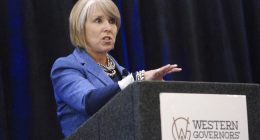F45 is a popular workout franchise consisting of 45-minute workouts with a mix of circuit and high-intensity interval training (HIIT).
At least five F45 gyms across Victoria, Queensland and South Australia – which are individually owned but franchise operated – have entered liquidation in the past six months, according to Australian Securities and Investments Commission (ASIC) records.

B&T Advisory has handled the liquidation of two F45 franchises based in Newstead in Queensland and two other gyms in Stafford and West End which collapsed in November last year.
“All Companies ceased to trade prior to our appointments due to reduced memberships as a result of COVID-19 pandemic and government legislation,” liquidator Murray Daniel told 9news.com.au.
“No assets were available upon appointment, with liabilities of approximately $100,000 per company, owing to the landlords and the Australian Taxation Office (ATO).”
9news.com.au has contacted the insolvency firms for the remaining F45 gyms listed for liquidation.
A further two gyms in Victoria have also issued their intention to wind up business, ASIC records reveal.

An F45 spokesperson said the franchise still maintains nearly 500 studios in Australia despite the closures.
Read Related Also: 'Woke' Killed England. We Are Next in Line
“We are one of the largest fitness operators in Australia and are proud to have been ranked the top Australian gym by Canstar Blue for the fifth consecutive year,” the spokesperson said.
“We recognise that the success of our franchisees is integral to F45’s overall success, and we continue to take steps to support our valued franchise network.
“With our recently announced $90 million financing and a strengthened Board and leadership team, F45 is on stronger footing to drive the business forward as we work to best position the company and its franchisees for the future.”
It comes after the fitness industry took a major toll during the COVID-19 pandemic as gyms were forced to close during lockdowns, then tough number restrictions for classes and capacities were introduced as well as strict cleaning practices.
CEO of AUSactive the health and fitness industry association Barrie Elvish said gyms have been forced to change their tactics in a post COVID-19 world.
“The fact is that many fitness brands with gyms in CBDs in the East Coast – particularly Sydney and Melbourne – have had to evolve their studio footprints to address shifting market dynamics and changes in consumer behaviour post-COVID,” he said.
“Factors include rises in suburban memberships due to more gym-goers working from home, more than half of the trainer workforce exiting the industry, and inconsistent practices by landlords on rent abatement in response to pandemic-required closures.”








